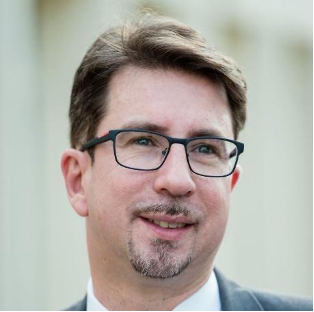Description of Activities
I am to positively influence the European market and its infrastructures by benefiting from international contributions (e.g. ISO/IEC) in the controlling of civil security and the protecting of e-identity and e-privacy.
Impact on SMEs (2nd Open Call)
Recent EU GDPR, eIDA2 regulations and NIS-2 directives developments impose a different view on IT risks, information security, data privacy protection and identity management controls, and by this a different awareness of the consequences that may fall improper compliance to good practices. Therefore, good standard references help establish confidence and maturity improvement in yesterday's matters.
Impact on SMEs (6th Open Call)
SME are better aware of risks and of controls required in IT and information protection. Recent EU GDPR, eIDA2 regulation, DORA, and NIS-2 directives developments impose a different view on IT risks, information security, data privacy protection and identity management controls, and by this a different awareness of the consequences that may fall down improper compliance to good practices. Good standard references help confidence establishment and maturity improvement in matter yesterday far from SMEs' concerns.
Impact on SMEs (7th Open Call)
SME are better aware of risks and of controls required in IT and information protection. Recent EU GDPR, eIDA2 regulation, DORA, and NIS-2 directives developments impose a different view on IT risks, information security, data privacy protection and identity management controls, and by this a different awareness of the consequences that may fall down improper compliance to good practices. Good standard references help confidence establishment and maturity improvement in matters yesterday far from SMEs' concerns.
Impact on society (2nd Open Call)
Christophe's Fellowship protects freedom and security of Europe and its citizens. Standards on reference architectures around e-identity and e-privacy management ensure protocols are in place to protect citizens and societies from cybersecurity and network threats. Finally, data protection good practice ensures any risk on identity information is mitigated uduring information processing.
Impact on society (6th Open Call)
This activity impacts the societal challenges in three key areas:
Secure societies - protecting freedom and security of Europe and its citizens: Supporting standards on e-identity and e-privacy information management ensures identity information lifecycle, identification, bound proofed identity information and authentication of citizen and societies are in place before authorized accesses to services is provided without compromising their privacy;
Cybersecurity, network and identity information security: Standards on reference architectures around e-identity and e-privacy management ensure information infrastructure has the required controls in place to protect citizen and societies while accessing and using provided services;
ePrivacy protection: Data protection good practice ensures any risk on identity information is mitigate during the processing of the information.
Impact on society (7th Open Call)
This work has societal impact at least on three axes, including:
Secure societies - protecting freedom and security of Europe and its citizens: Supporting standards on e-identity and e-privacy information management ensures identity information lifecycle, identification, bound proofed identity information and authentication of citizens and societies are in place before authorized accesses to services is provided without compromising their privacy;
Cybersecurity, network and identity information security: Standards on reference architectures around e-identity and e-privacy management ensure information infrastructure has the required controls in place to protect citizens and societies while accessing and using provided services;
ePrivacy protection: Data protection good practice ensures any risk on identity information is mitigated during the processing of the information.
Organization
Viewconcept.be
Proposal Title (1st Open Call)
Contribution to e-identification and e-authentication at CEN/CLC/JTC 13 and ISO/IEC JTC1/SC 27 WG5’s
Proposal Title (2nd Open Call)
ntribution to e-identification and e-authentication at CEN/CLC/JTC 13 & ISO/IEC JTC1/SC 27 WG5’s
Proposal Title (3rd Open Call)
Contribution to e-identification and e-authentication at CEN/CLC/JTC 13 & ISO/ IEC JTC1/SC 27 WG5’s
Proposal Title (5th Open Call)
Contribution to e-identification and e-authentication at CEN/CLC/JTC 13 & ISO/IEC JTC1/SC 27 WG5’s
Proposal Title (6th Open Call)
contribute to a better harmonization of e-identity and privacy protection standardization support in Europe
Establishment of a Liaison Statement of ISO/IEC JTC 1/SC 27 WG 5 to CEN-CENELEC JTC13.
Contribution to the definition of AG5 on strategy as part of the ISO JTC1 SC27 WG5
Proposal Title (7th Open Call)
Contribution to e-identification and e-authentication at CEN/CLC/JTC 13 & ISO/IEC JTC1/SC 27 WG5’s
Standards Development Organisation










